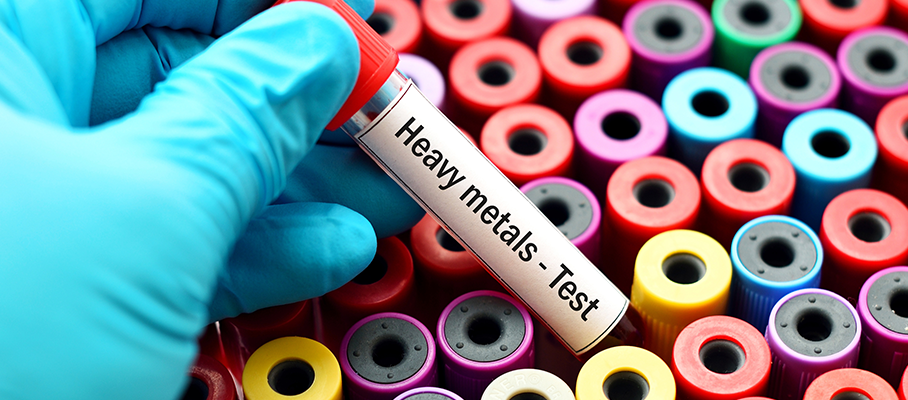Disease
Lead Poisoning Symptoms: Know Lead Poisoning Side Effects - Metropolis Study

Mumbai June 2015:Lead poisoning remains one of the most important environmental health concerns globally. It is a cumulative toxicant that affects multiple body systems and is particularly harmful to young children. An analysis of 733 blood samples collected over the past one year by Metropolis Healthcare Ltd reveals that 23.47% of the total samples tested positive with Lead poisoning. At Metropolis, Lead Poisoning is tested using high sensitivity technology called ICPMS (Inductively Coupled Plasma Mass Spectrometry) and Graphite Furnace Atomic absorption spectrometry. Blood, Serum and Urine samples can be tested for Lead.
According to a WHO study, lead exposure is estimated to account for 1,43,000 deaths per year with the highest burden in developing regions. Young children are particularly vulnerable to the toxic effects of lead and can suffer profound and permanent adverse health effects, particularly affecting the development of the brain and nervous system. Lead exposure is estimated to contribute to 6,00,000 new cases of children with intellectual disabilities every year. In growing children, lead poisoning causes low IQ, hyperactivity, attention deficit, learning disabilities and anemia.
Lead-based paint and lead-contaminated dust in older buildings are the most common sources of lead poisoning in children. Other sources include contaminated air, water and soil. Lead also causes long-term harm in adults, including increased risk of high blood pressure and kidney damage. Adults who work with batteries, do home renovations or work in auto repair shops also may be exposed to lead. It can induce brain, kidney, stomach, heart, hearing, muscle and fertility damage. Exposure of pregnant women to high levels of lead can cause miscarriage, stillbirth, premature birth and low birth weight, as well as minor malformations. Women with high blood lead levels develop early osteoporosis, lower backache, joint pain and persistent anemia.
Lead Profile
(Reference range : Normal – 0 – 9 μg/dL , Positive – Above 9 μg/dL)
*Children under the age of 6 are especially vulnerable to lead poisoning, which can severely affect mental and physical development. While the American Center for Disease Control and Prevention suggests that a value below 9 ug/dl is safe in children and adults, the healthcare practitioner takes disease management decision based on the symptoms in the patient.
Please note: The data represents patient sample testing in clinically suspected individuals and hence the % of positivity seen cannot be extrapolated to general population. However, possibility of lead toxicity exists across all age groups & should be considered in appropriate clinical settings.
Commenting on the study Dr.SandeepWarghade, Consulting Pathologist Metropolis HealthcareLtd said, “Lead poisoning can be hard to detect even people who seem healthy can have high blood levels of lead. At high levels of exposure, lead damages the brain and central nervous system and can lead to coma, convulsions and even death, signs and symptoms of lead poisoning usually don’t appear until dangerous amounts have accumulated. Lead poisoning can be treated if detected at an early stage; taking some simple precautions can help protect yourself and your family”.
Major sources of blood lead include leaded contaminated soil, drinking water, petrol emissions, household dust, battery recycling, silver refining, paints (especially yellow), pigments, printing presses, ceramic pottery glazes, cosmetics, colours (including kumkum, sindoor, spices and Holi colours), children’s toys (crayons and painted pencils), plant foods and traditional medicines.
Lead poisoning cases in young children are high because of licking or eating lead-containing paint when it is peeling off the walls or toys. Lead from a mother’s blood can pass to the fetus during pregnancy, possibly giving rise to genetic disorders.




























